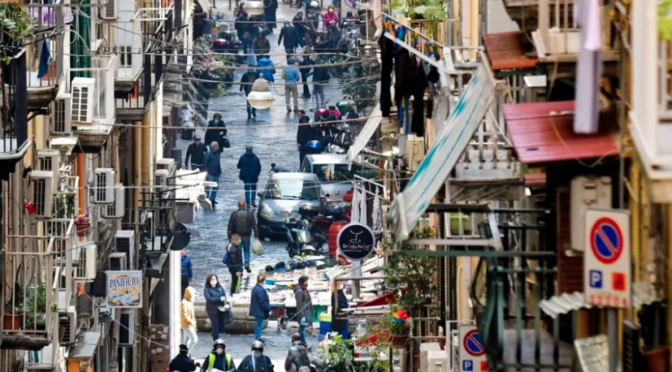Organised crime is already giving food parcels to the poor in Italy and Mexico. For the cartels and syndicates, this crisis is an opportunity
Pestilence presents a moment of great opportunity for many businesses.
Consider the speed at which contracts are put out to tender to meet extraordinary needs. Consider the ability to move goods and money without all the normal checks or legal and bureaucratic protocols. Plague is a boon for the commercial class.
The art of profit is based on exploiting need, and no one has perfected that dark art better than organised crime. The Covid-19 pandemic is already demonstrating this. With their usual business acumen, criminal organisations have, in recent decades, invested in a number of companies that have turned out to be very relevant to the present crisis: multi-service businesses (catering, cleaning or disinfection), industrial laundries, transport, funeral homes, waste collection, food distribution – and the health. All of these sectors have become fundamental to our survival over recent weeks, and will probably remain so for a good while.
In Italy, police have already raised the alarm about mafia cartels’ investment in the production and distribution of “epidemic kits”, comprising masks, hand sanitiser and latex gloves. These products are today almost impossible to find, and the sudden overwhelming demand (surely destined to continue over the coming months) has caused prices to skyrocket.
For the Calabrian mafia, the ’ndrangheta, this would be familiar territory: for years it made capital investments in the pharmaceutical and healthcare products sectors. In March 2016, it was revealed that the ’ndrangheta had been working aggressively to establish itself in medical and pharmaceutical industries across Lombardy – which became Italy’s Covid-19 “Ground Zero” – even dispatching cartel operatives and their relatives to qualify in medicine, nursing and pharmacology.

